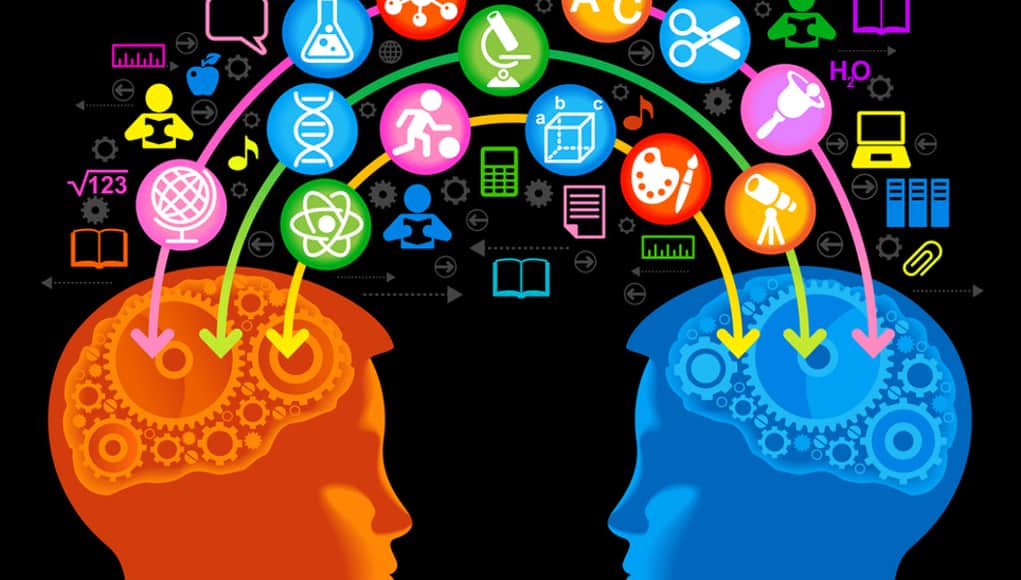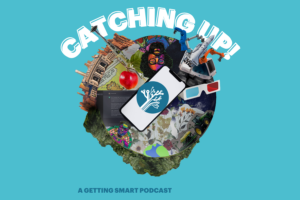12 New Rules: Accelerated Learning for an Exponential World

Our study of artificial intelligence and the new automation economy yielded eight postulates:
Fast. Moore’s law (exponential computing power) has resulted in nearly free computing, storage and devices. It powers big data (internet of things), artificial intelligence—-code that learns–and a growing number of enabling technologies like robotics.
Ubiquitous. Artificial intelligence-is the most important invention in history and has rapidly become ubiquitous in apps, platforms, and the power tools of automation.
Dislocation. Smart machines will eat the middle of the job market—in some places as soon as 10 years–and create even bigger income gaps. Hundreds of millions of jobs based on repetitive rules application will be phased out.
High change. Urbanization, automation, and globalization– and the resulting clash of natural and man made systems–will result in unprecedented waves of novelty and complexity; we’re all experiencing high change (including dislocation and disaster)…and it speeds up from here.
Tough issues. Exponential tech is swamping civic capacity to deal with new complicated ethical, educational, and economic issues. The civic focus will shift from production mechanisms to sharing mechanisms.
New contributions. There’s never time to make a difference. AI will help cure disease, create clean energy, improve services, reduce drudgery, and make transportation cheap and safe.
New opportunity. There will be tens of millions of new high-wage jobs created in smart cities that skill up around the 4th Industrial Revolution. There’s never been a better time to build an app, launch a campaign, start an organization.
New skills. Machine intelligence makes predictions cheap but human judgement valuable. Empathy and social interaction, creativity and design thinking, and an innovation mindset will be increasingly in demand.
It’s likely to be a good news, bad news story–lots of change and dislocation but lots of opportunity–and that will play out a bit differently in every region depending on what leaders do next.
12 New Rules for EdPolicy Makers
How to respond to the rise of the automation economy? Is there a more nuanced answer than “all kids college ready”?
For state and local education policymakers, we see 12 new rules about accelerated learning:
1. Regions with higher education levels will win in the automation economy
- It’s time to update your graduate profile (here’s how).
- Social and emotional skills are core to life and work success.
- Design thinking and computational thinking are key to attacking the kind of complexity young people will face.
- Job specific skills are increasingly gained on the job or rapid blended and competency-based learning sequences (like coding bootcamps, robotics training).
- Regions should focus on job clusters that leverage local assets (agriculture, logistics, manufacturing, biotech).
2. Encourage at least two college credits in high school
- Young people benefit from experiencing postsecondary success while in high school. They get a running start on college and save some money in the process.
- AP is widely recognized and getting more applied, transferable college credit is even better.
3. Make dual enrollment credits transferable to every state HigherEd institution
4. Give every family access to a free accelerated AA degree
- Early college high schools (ECHS) give high school students the opportunity to earn an AA degree with their high school diploma promote. Over 90% of ECHS students graduate, almost a third with an AA degree (over 90% at Quest in Houston, see course enrollment plan with Lone Star College).
- ECHS are great solutions but require adults to share (funding must be portable) and collaborate (time and transcripts).
- ECHS are great but they require students to work hard (six years in four) with strong literacy supports.
- The accelerated degree bargain can be a significant motivator (like to issue, gift, or relationship).
- Where possible, build Ptech partnerships that combine ECHS, work experience and the promise of employment (see Chicago example).
- Consider emerging new high engagement/high support ECHS models like Match Beyond and concurrent enrollment at ASU Prep Digital.
5. Support at least two successful workplace experiences in high school.
- Work experience can be even more important than formal education in building employment skills, contacts, and a sense of purpose.
- The CAPS Network includes 60 school districts across 10 states reaching 10,000 students with work preparation skills and internships.
6. Support at least two successful performing arts experiences in high school.
- Art, drama, and music build agency, model learning pathways, and can provide models of successful team projects (see a choral music example).
7. Support at least two extended challenges with public products in high school.
- New Tech Network schools conduct almost all of their learning in big integrated blocks. If you can’t get there, start with a science fair, senior project, integrated block, community service projects, or a First robotics club.
8. Encourage students to develop a digital portfolio of personal bests and LinkedIn profile with posts, connections and references.
- Juniors at New Tech High in Napa develop a LinkedIn profile.
9. Don’t encourage college without supporting the development of a plan and a sense of purpose.
- College return on investment has plummeted as costs increase and employment becomes more uncertain. Help young people avoid the new worst case scenario of debt and no credential.
- Require a postsecondary plan.
- Introduce youth to local and global challenges and opportunities to help them find their cause for contribution.
10. Where possible, build work and earn ladders linked to family wage employment with growth potential.
- Robotics training like RAMTEC, an Ohio network.
- Advanced manufacturing training like GPS Education (Milwaukee).
- Coding bootcamps (see summer bootcamps).
11. Require and support entrepreneurship training and experience
- Ice House, Wildfire Education, Lemonade Stand, Jump Start, Fix-Ed, $20 Boss, and Hack in a Box teach entrepreneurship and impact-oriented problem solving.
12. Require and support K-12 attack skills for complexity
- Design thinking: how to attack adaptive problems (computational thinking, data science).
- Project management: leading a team through a multi-step task to a public deliverable.
For more see
- America Succeeds Reports on Education Pathways for the Future of Work
- 10 Really Hard Decisions Coming Our Way
- Staying Ahead of the Robots: What Grads Should Know and Be Able To Do
- The Future of Skills: Employment in 2030






0 Comments
Leave a Comment
Your email address will not be published. All fields are required.